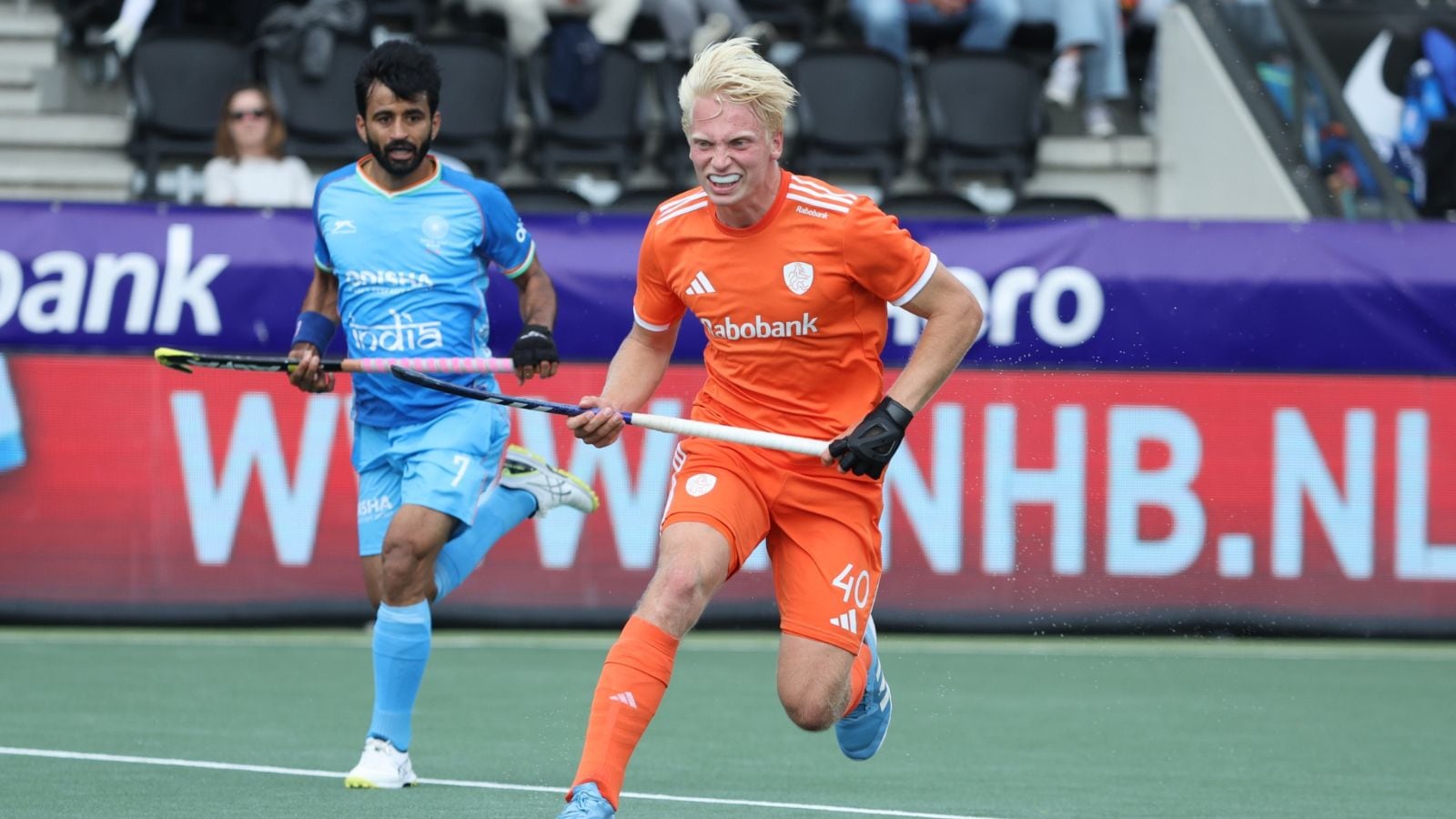ARTICLE AD BOX
Among the 2,400 players competing at the 21st Delhi International Chess Open GM Tournament, 66-year-old Raset Ziatdinov is the lowest-rated grandmaster among the 24 featured in the event. But he has an India connection that makes him a significant visitor to competitions in the country.
Currently rated just 2065, he is ranked 91st in the event, with 35 titled players and many untitled players placed well above him. Yet, Ziatdinov — an Uzbek who plays under the USA flag — is entirely at peace with life. A self-professed Indophile, he has been visiting India five to six times a year for over a decade, primarily to compete in Open events, but also to conduct training camps for young Indian chess enthusiasts, from Kerala to Rajasthan, from Hyderabad to Bhubaneswar.
While he rues the loss of rating points in recent years, Ziatdinov has other motivations that keep him going.
“I lost 500 Elo points in India,” Ziatdinov says with a hearty laugh. “I just bled rating points. But after hitting 2605 — my peak — I stopped caring about ratings,” admits the former Soviet player.
 Raset Ziatdinov’s action images during the Delhi Open event. Credit: Special Arrangement
Raset Ziatdinov’s action images during the Delhi Open event. Credit: Special Arrangement
Ziatdinov’s brush with India media attention came in December 2024 — though not for a reason he’d boast about. He lost to nine-year-old Aarit Kapil, who made history at the KIIT International Open in Bhubaneswar as the youngest Indian (and third-youngest globally) to defeat a Grandmaster. It might have been even more discomforting for Ziatdinov to see Kapil ahead of him in the ratings and rankings at the Delhi Open.
But Ziatdinov’s love for India is more than evident, highlighted by his frequent visits to train promising youngsters in the sport.
“I only have happy memories in India,” he says. “I like India very much. The people are very kind here, and they are developing chess tremendously. I conduct many camps for children in India. You have wonderful people, excellent food, and good hotels. It’s very difficult to find such good conditions in other countries, especially in Europe or America, at these prices.”
Story continues below this ad
The veteran’s connections in India run deep. “I have many friends here… we discuss everything,.I’ve had many Indian students. Manisha Kiran was one of them. There’s also Tanisha from Hyderabad. She’s 11. We had sessions through the internet and during my camps there,” he adds.
Kiran Manisha Mohanty, Odisha’s first Woman Grandmaster, describes her experience: “I had just completed my engineering degree then. We had a few online sessions back in 2012-2013. He was a player of considerable strength then, rated around 2300. Coming from Uzbekistan with a Russian chess background, his endgame knowledge was particularly strong. He helped me with opening strategies too, and I achieved some good results afterwards.”
Different motivations
In a sport obsessed with ratings and rankings, Ziatdinov is an outlier with different motivations, but is now trying to work his way back.
“I played many games with friends who sometimes needed draws, so I’d say, ‘Fine, take it,’” he says. “Even I’m surprised by my rating drop. There was a year when I lost heavily, but now I’m recovering. I’ll improve, for sure.”
Story continues below this ad
Ziatdinov is a man of quirks, unafraid to experiment. His approach to chess might defy convention, but that is what sets him apart from the others at the Delhi Open.
Born into a sporting family — his father was a footballer for the Soviet Union — Ziatdinov inherited his competitive zeal.
“It wasn’t just any team; they played in championships,” he boasts. “But he loved chess more than I did. He’d play 24 hours nonstop. If I could do that, I’d be world champion!” his laughter crinkles his weathered face. “I could’ve been like him, but I’ve done many things beyond chess.”
Life beyond the board
A scholar of Celestial Mechanics and Dynamics of Rigid Bodies at Tashkent State University, Ziatdinov is a polymath. Before teaching mathematics there, he worked as a programmer in the United States, then as a professor at Brevard Community College and University of California, Irvine, specialising in micro-controllers.
Story continues below this ad
Even now, equations fill his downtime. After defeating Rajasthan’s Rishen Jilowa in Round 1 of Delhi Open, he unwound with Uzbek cigarettes, black coffee, and an attempt to solve differential equations using group theory, leaving his notepad smudged.
Ziatdinov writes for math journals, runs a nostalgic 90s-style Russian website chronicling his life, and is a relentless Facebook chronicler.
 Ziatdinov’s notepad where he is trying to find new ways to solve differential equations with group theory. Credit: Mayank.
Ziatdinov’s notepad where he is trying to find new ways to solve differential equations with group theory. Credit: Mayank.
“My whole life is on Facebook. I’ve posted daily for over a decade,” he says. “I’ve done many things, but chess? It is much better. Especially in India, where you play a new game every day. Today, an 11-year-old state youth champion. Too easy,” he smirks.
Now well past his prime chess years — he peaked at 2605 in 1998 — Ziatdinov’s journey to the Grandmaster title was quite unconventional. Though he completed all three GM norms by 1991, he didn’t apply for the title until 2005. In his own words: “I simply hadn’t found time to apply earlier.”
Story continues below this ad
After nearly two decades in the United States, he has returned to Tashkent, heeding his mother’s wish to come home. As age catches up with him, he occasionally forgets simple things, like his phone charger.
“The same thing happens in my games sometimes… I look back and don’t understand why I made certain moves. I spend too much time on Facebook; perhaps I should analyse myself and my games more. But I’ve started doing that again now.”



.png)
.png)
.png)


























 English (US) ·
English (US) ·